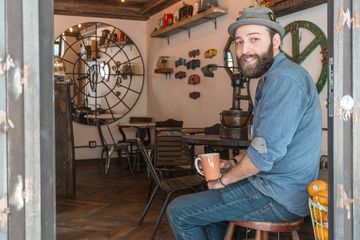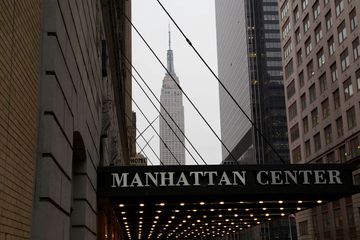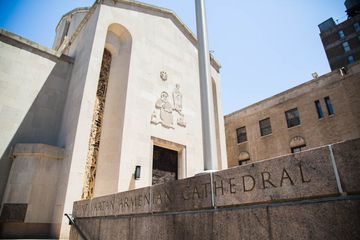At first glance, Old Country Coffee, managed by Lower East Side native Jesus Guerrios, seems out of sync with the bustling Hudson Yards and massive construction project that surround it. But that, it turns out, is precisely Jesus’ objective. “Our goal, ” he says, “is to provide an oasis in this industrial, commercial area. ” This small, inviting coffee shop with floors and ceiling made from Pennsylvanian oak combines modern and antique in its decor. And indeed, once the door closes, it is almost as if New York did not continue to exist outside. Jesus was approached by owner Dennis Donato in August 2015, who asked him to build a coffee shop and gave him free rein to design and manage it as he saw fit. Gregory Allan Cramer, I learned, was the genius behind the cafe's design. An important choice that stands out is that the coffee shop serves locally roasted, custom blend coffee - sixty percent of which is from Asian Pacific beans and forty percent from South American beans - together with pastries from La Marjolaine Bakery in Queens. The resulting coffee is smooth and flavorful without being too bitter. Yet this is just the tip of the iceberg of what Jesus, the former manager of the popular Cocoa Bar (with a striking resemblance to Dominican singer and icon, Juan Luis Guerra), has in the works. Sometime in late 2016 the coffee shop will become a beer and wine bar at night. Once the scaffolding outside gets removed, Jesus plans to install tables and chairs to seat more customers. To top it all off, he may open two more locations next year. So, as the Hudson Yards project is driven to completion and pedestrian traffic increases, Old Country Coffee may serve as an oasis not just in that area, but in many others throughout the city.



